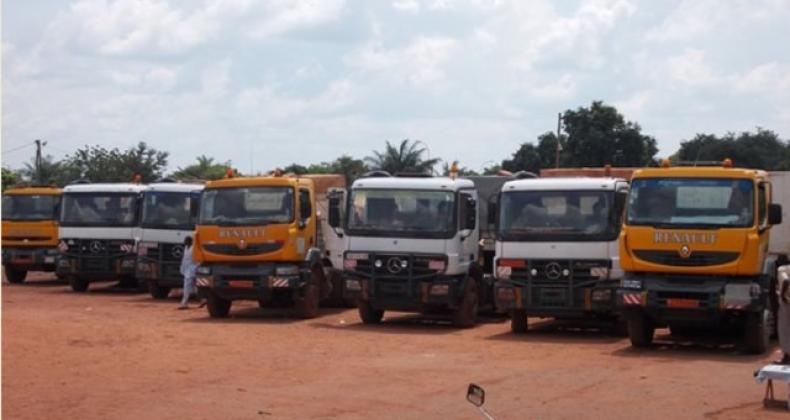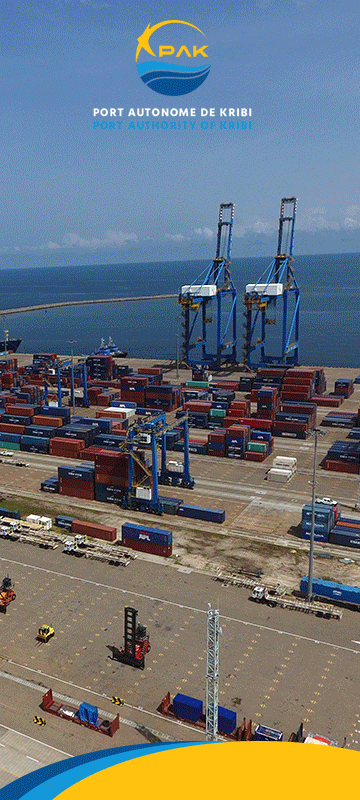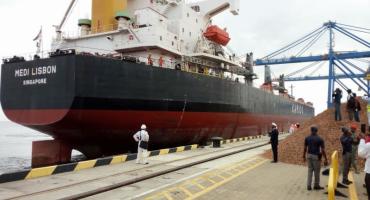This is a fact that Cameroonian logistics, transport and maritime industry players must now take into account more than ever: Congo and CAR have committed themselves to securing and improving on the fluidity and security of the flow of goods along the Pointe-Noire-Brazzaville-Bangui multimodal corridor. The signed document aims in particular to facilitate and promote the transit of goods between both countries, from the Port authority of Pointe-Noire, through the Congo-Ocean Railway, the road corridor via national roads 1 and 2, as well as by boat, from the Congo River.
"Our two countries are intimately linked by history and geography. This community space must therefore be developed to promote the mobility of goods and services. It is about the free movement of people, goods and capital in order to generate added value in the integration process of our sub-region," said the Prime Minister of the Central African Republic, Théodore Jousso.
Under the terms of the agreement, Congo and the Central African Republic (CAR) undertake, inter alia, to maintain the freedom of transit of goods to or from either State, but also to facilitate border crossing and free movement within their respective territories.
Aware of the economic stakes involved in transit activities between both States, the two parties reaffirmed their commitment to support the implementation of the integration policy of the Economic Community of Central African States and the Economic and Monetary Community of Central Africa through the development of road, rail and river infrastructure.
In this respect, it must be said that the issues surrounding the facilitation of the passage of goods through the Cameroonian ports of Kribi and Douala have become of the greatest concern in the national port industry. This illustrates the signing of this agreement between Congo and CAR, which resonates as a sign of alternative routes that are gradually being put in place here and there. For example, as Gabriel Manimben, Director General of the Maritime Services Agency, explains "ships leaving China or Dubai arrive in Port Sudan between 10 and 15 days, goods bound for Ndjamena are transported there in trucks with loading capacities of up to 60 tonnes, which makes the transport price cheaper than that from Cameroon, where transit time on Douala is, for its part, 30/35 days if we add the delays and costs of passage through the port and in the corridor on trucks that cannot carry more than 32 tonnes". In fact, he continues, "the trader who imports via Port Sudan receives his goods after 21/25 days of shipment against 40/45 via the port of Douala". It is therefore imperative that all stakeholders in the port sector, both in Yaoundé and Kribi, mobilize to make the issue of facilitating the passage of goods a very important priority in the years to come.
CFA F 200 Bn
According to Cyrus Ngo’o, General Manager of the Port Authority of Douala (PAD), the issue of facilitating procedures is key to the future of the Cameroonian coastline as a whole. Because, he notes, the dysfunctions that occur can sometimes have some of the most serious consequences. Thus, he pointed out, the coast and national corridors have lost more than 600,000 tonnes of cargo since 2014. Even if the fall in oil prices has something to do with it, he stresses, "it is nevertheless true that this loss represents some 200 billion CFA francs, including port services and transport". According to the carriers' complaints, these 600,000 tonnes equivalent to 20,000 TEU containers have deserted the Cameroonian corridors due, in large part, to the various annoyances that cost around 140,000 francs. CFA per trip, i.e. 2 billion CFA francs entered into undue pockets. In short, the national economic fabric has lost some CFAF 200 billion due to individual interests in three years




